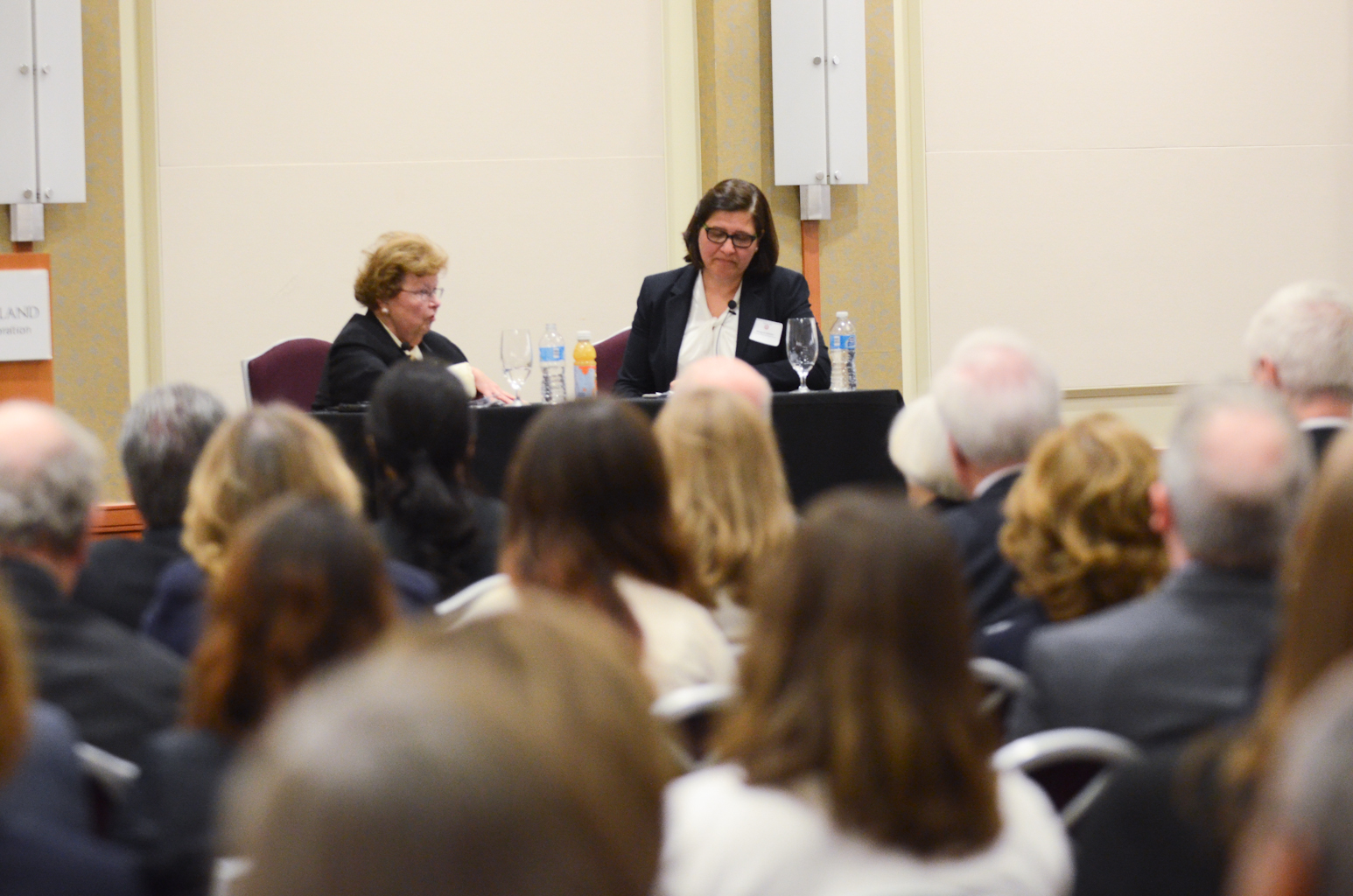
The Honorable Barbara Mikulski
Margaret Johnson, Professor of Law; Director, Bronfein Family Law Clinic; Co-Director, Center on Applied Feminism, University of Baltimore and Co-director of the Center on Applied Feminism
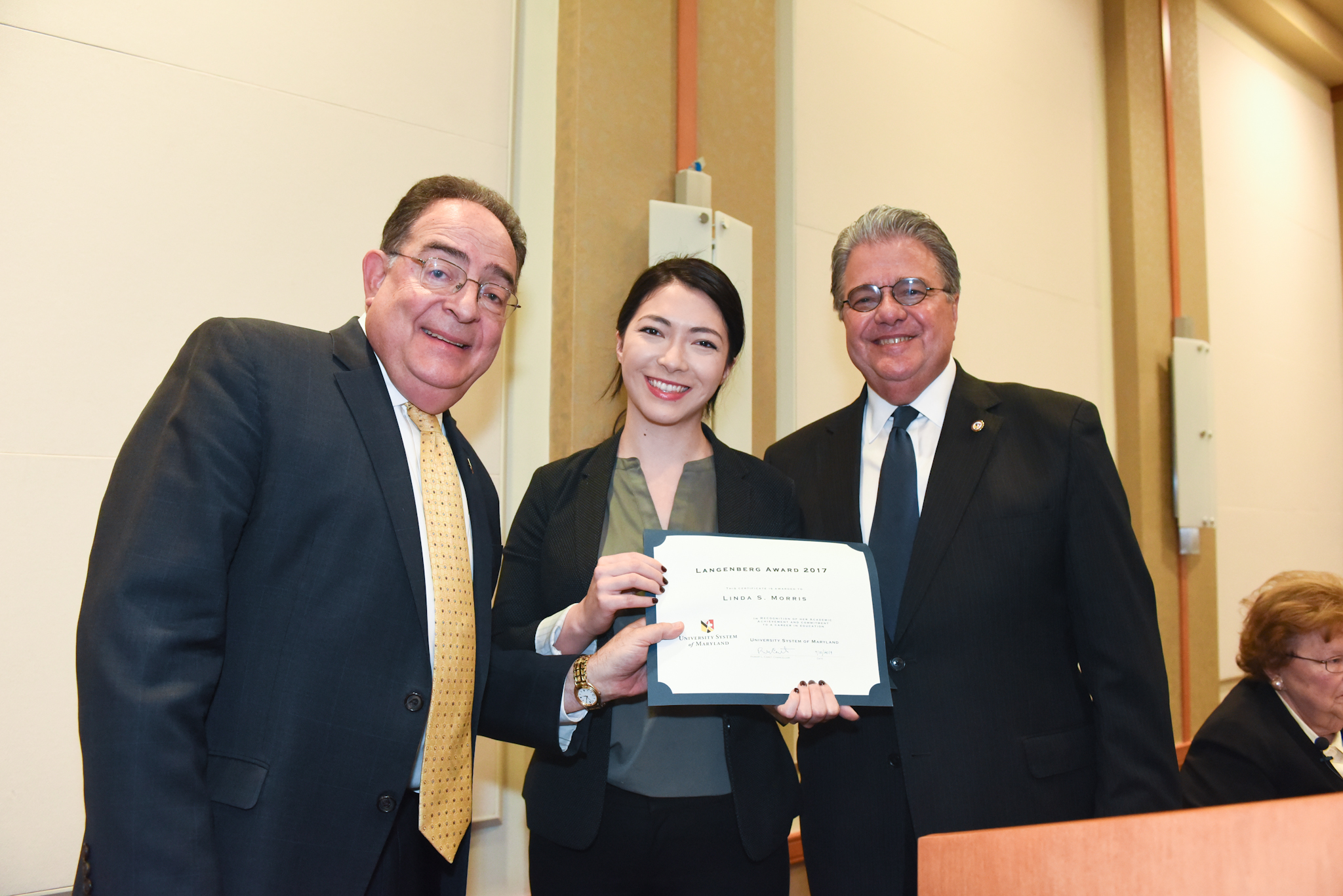
Jay A. Perman, President, University of Maryland, Baltimore
Linda S. Morris, UMB Law Student and Langenberg Scholarship Recipient
Robert L. Caret, Chancellor, USM
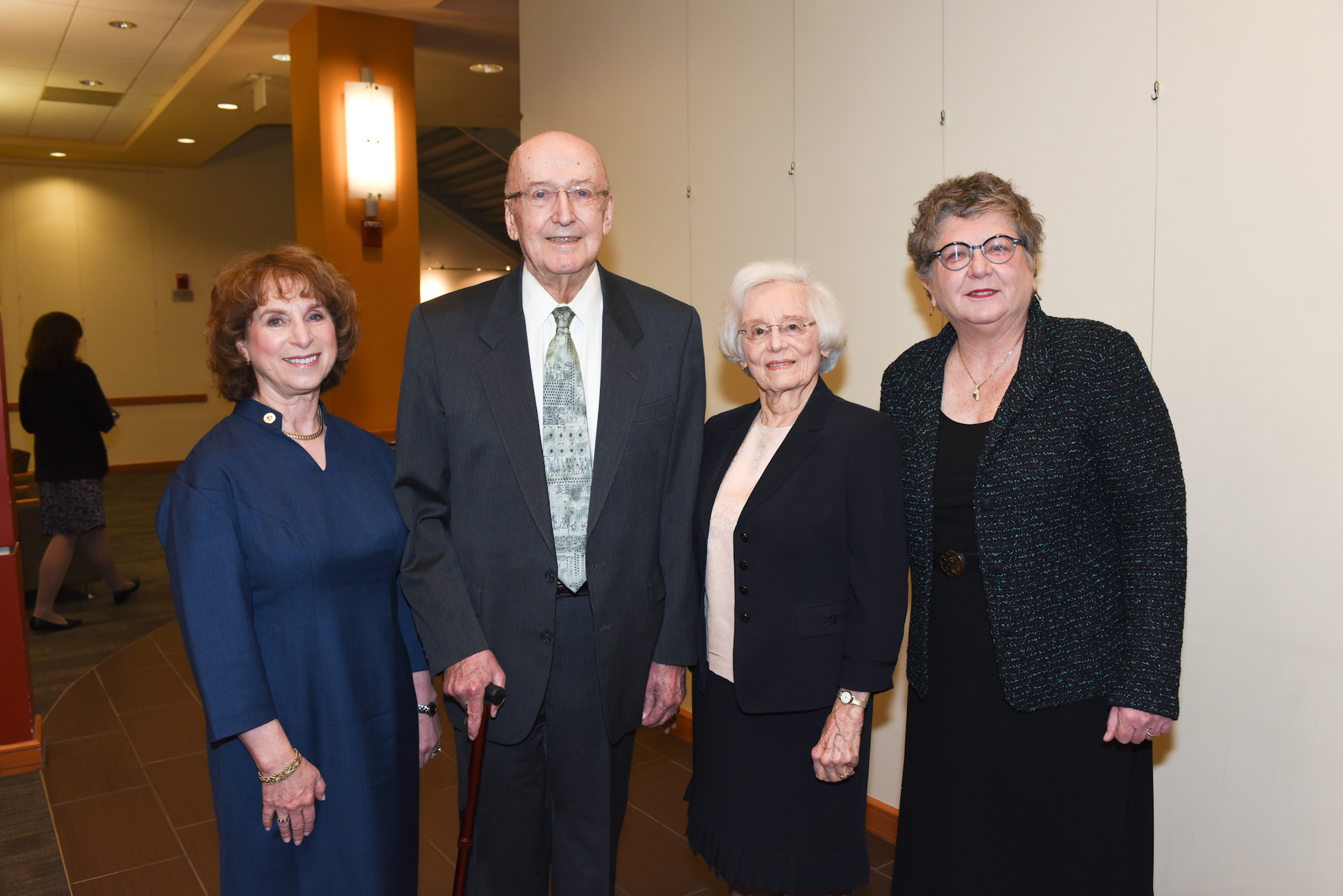
Nancy Shapiro, Associate Vice Chancellor for Education and Outreach, USM
Donald N. Langenberg, Chancellor Emeritus, USM
Patricia Langenberg, Professor Emeritus, University of Maryland School of Medicine
Kim Schatzel, President, Towson University
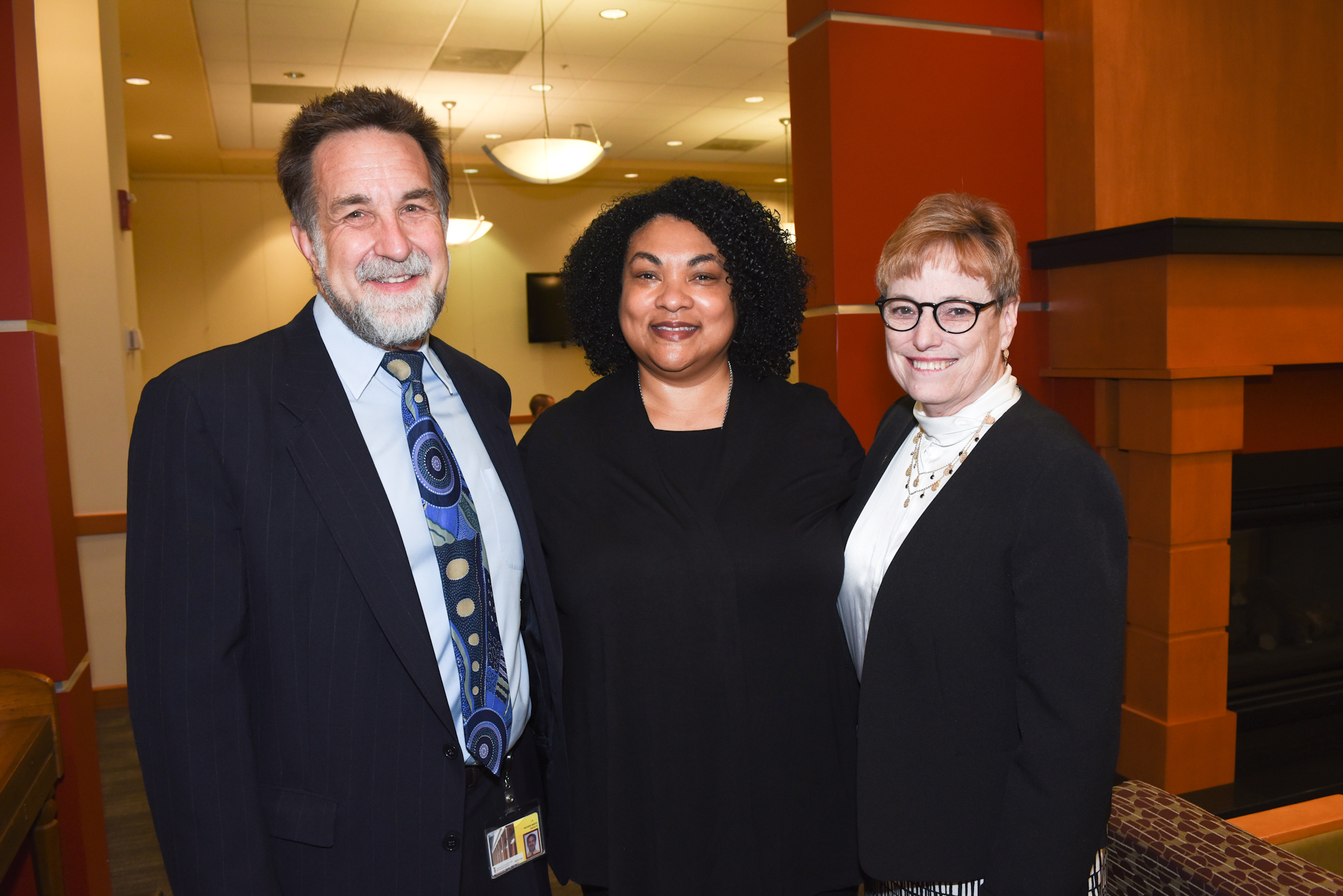
Richard P. Barth, Dean, University of Maryland, Baltimore School of Social Work
Maria Thompson, President, Coppin State University
Joann Boughman, Senior Vice Chancellor for Academic and Student Affairs, USM
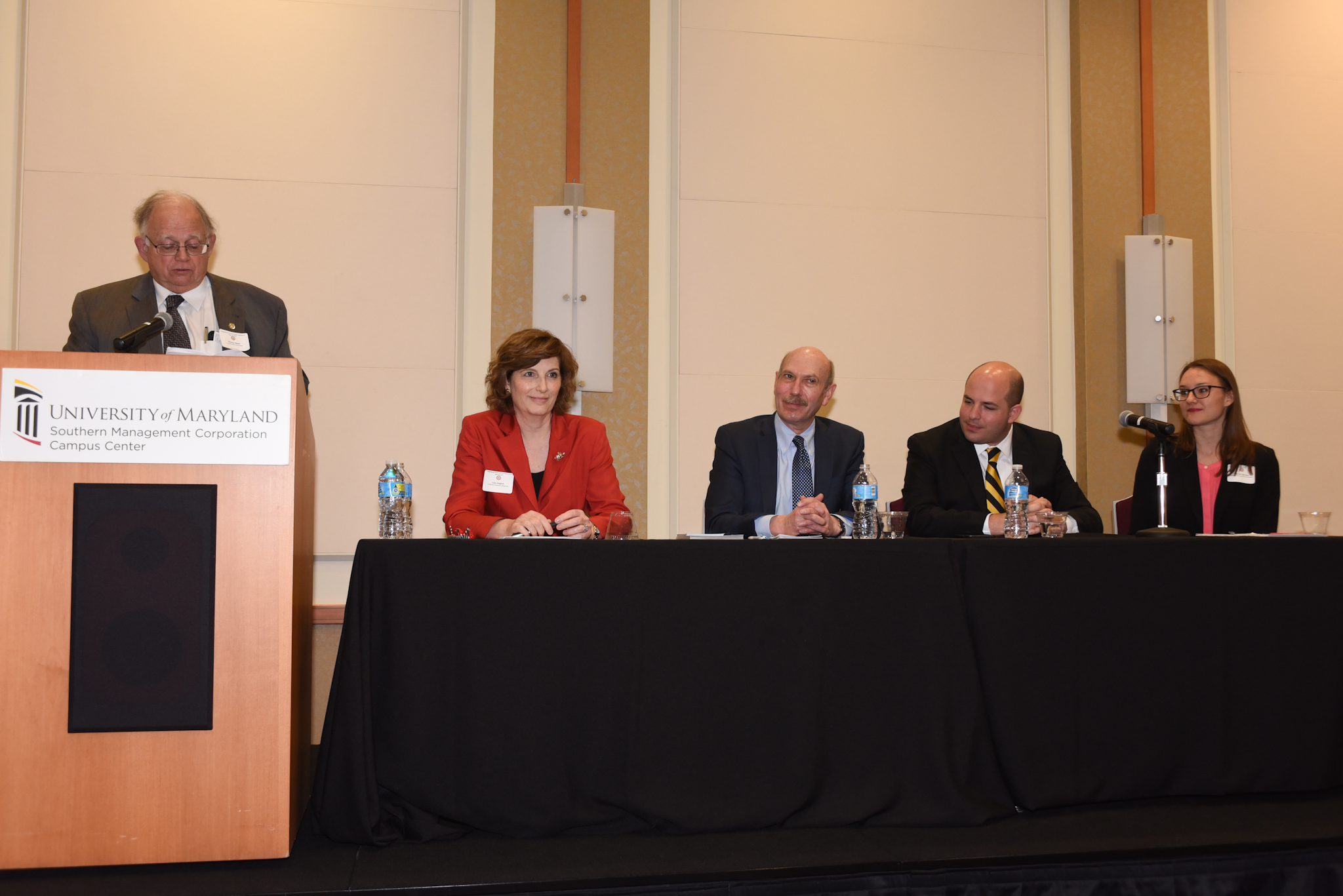
Thomas Slater, Chair, Committee on Education Policy and Student Life, Assistant Secretary, Board of Regents, USM
Lucy Dalglish, Dean, University of Maryland College of Journalism
Alan Miller, The News Literacy Project, President and CEO
Brian Stelter, Senior Media Correspondent, CNN
Hanna Cole-Chu, Student, University of Maryland Francis King Carey School of Law
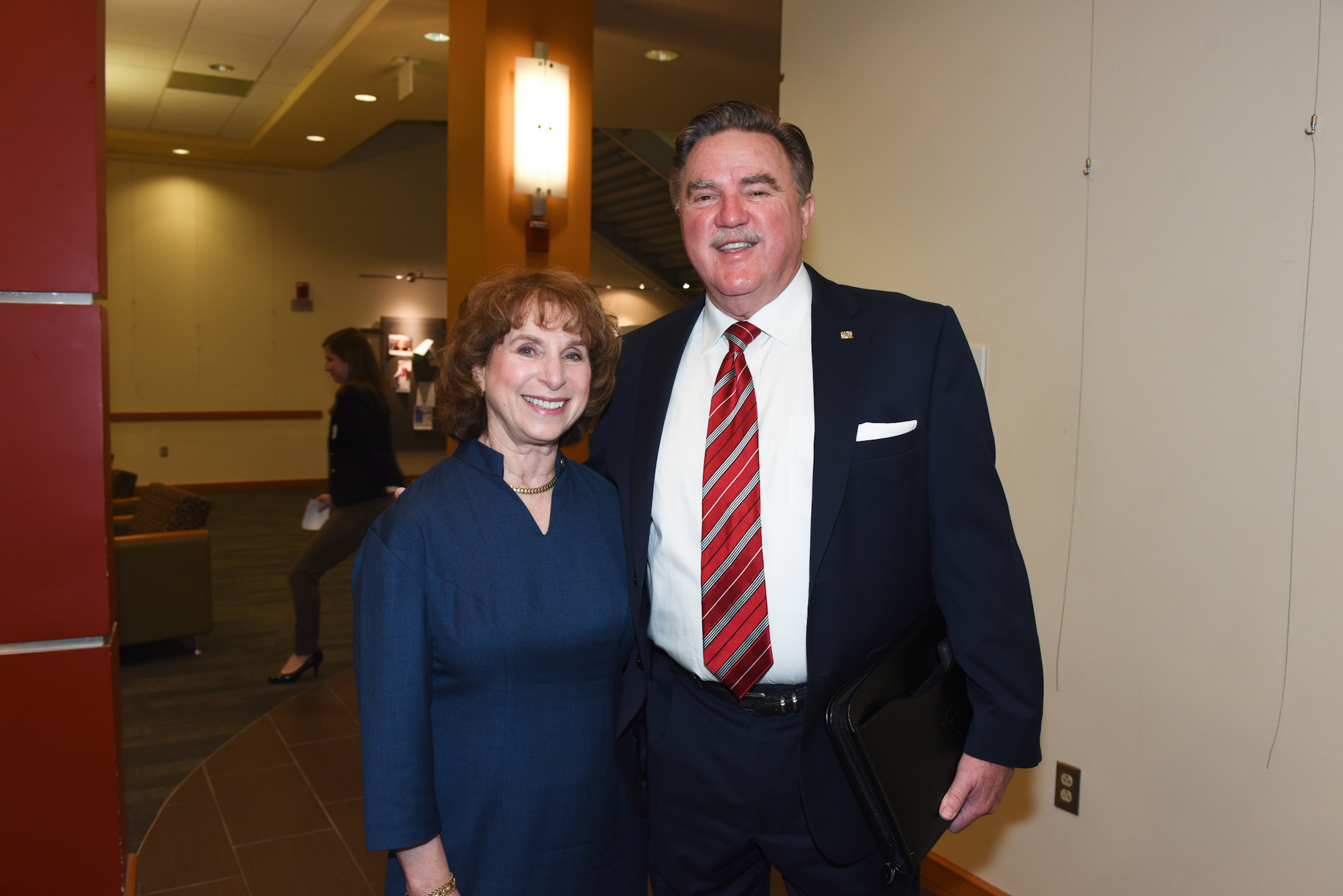
Nancy Shapiro, Associate Vice Chancellor for Education and Outreach, USM
James D. Fielder, Jr., Secretary of Higher Education, Maryland Higher Education Commission
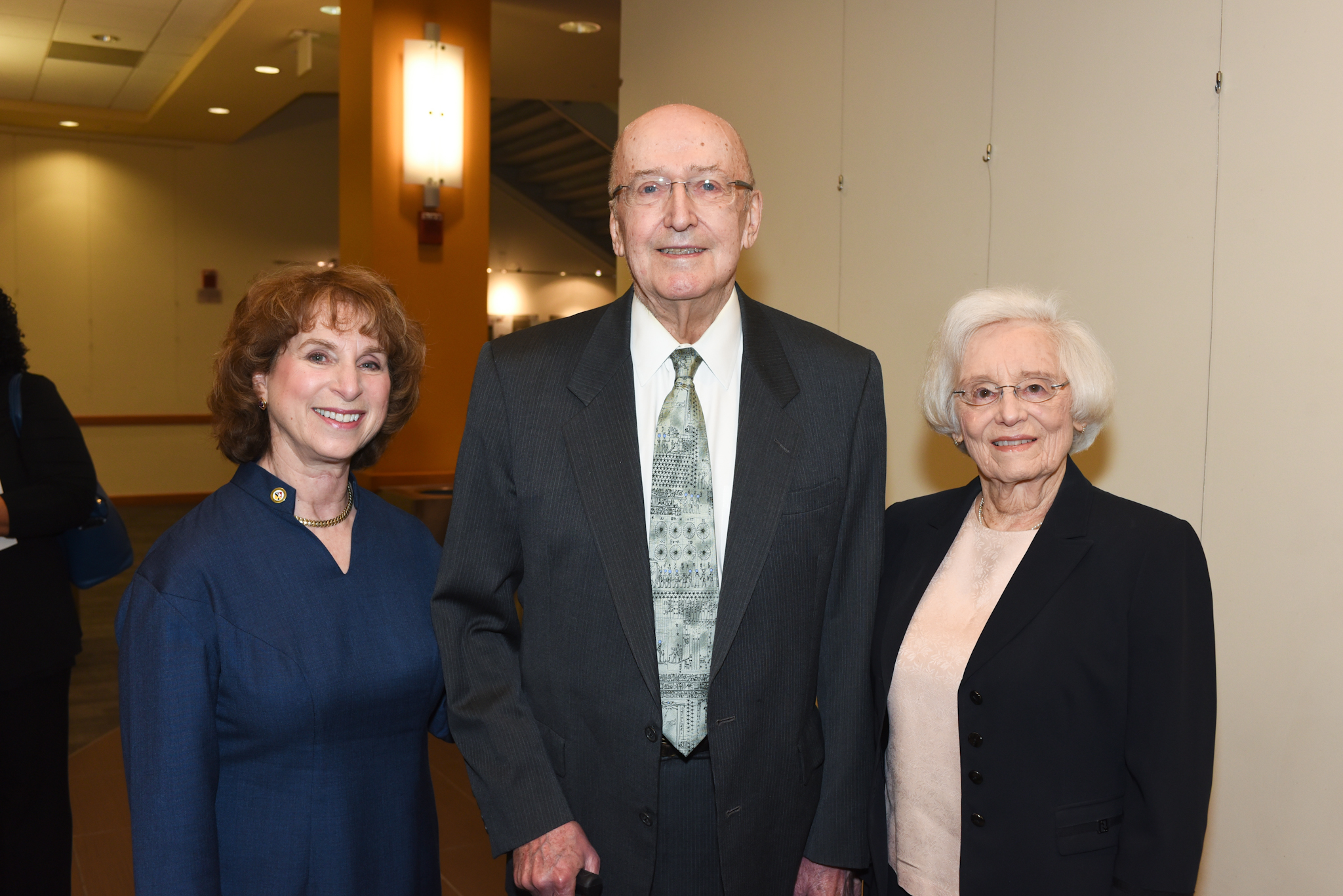
Nancy Shapiro, Associate Vice Chancellor for Education and Outreach, USM
Donald N. Langenberg, Chancellor Emeritus, USM
Patricia Langenberg, Professor Emeritus, University of Maryland School of Medicine
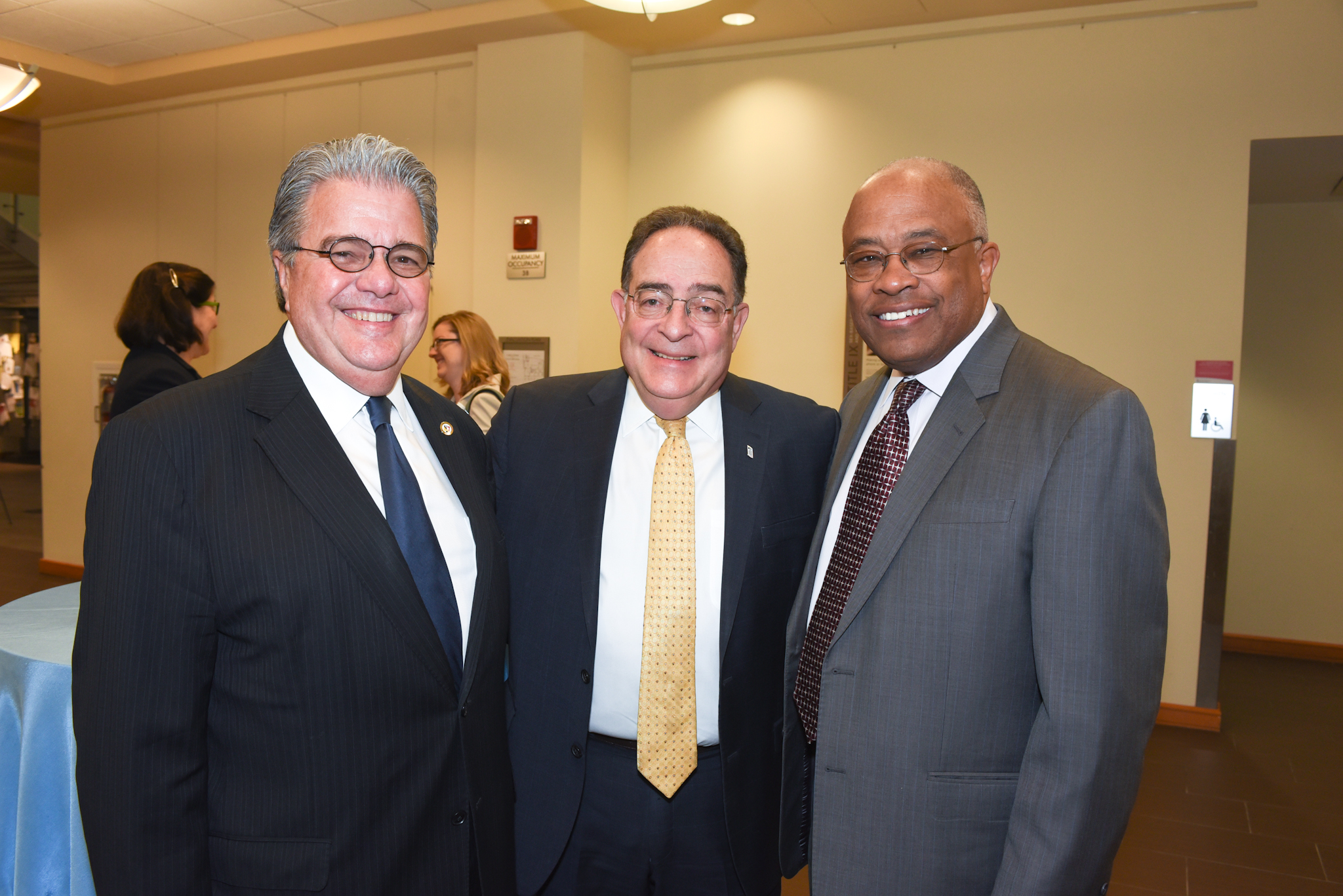
Robert L. Caret, USM Chancellor
Jay A. Perman, President, University of Maryland, Baltimore
Kurt Schmoke, President, University of Baltimore
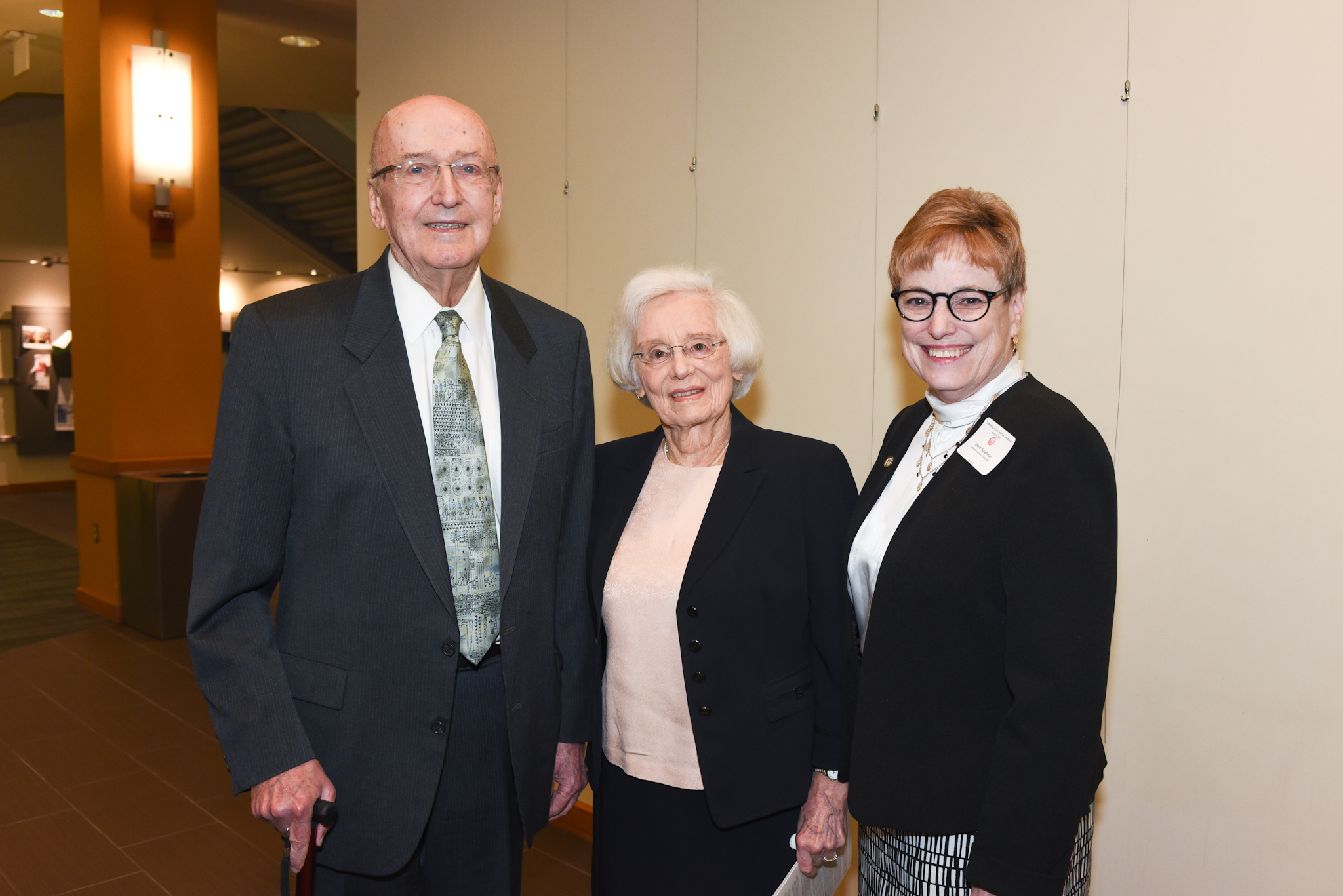
Donald N. Langenberg, Chancellor Emeritus, USM
Patricia Langenberg, Professor Emeritus, University of Maryland School of Medicine
Joann Boughman, Senior Vice Chancellor for Academic and Student Affairs, USM
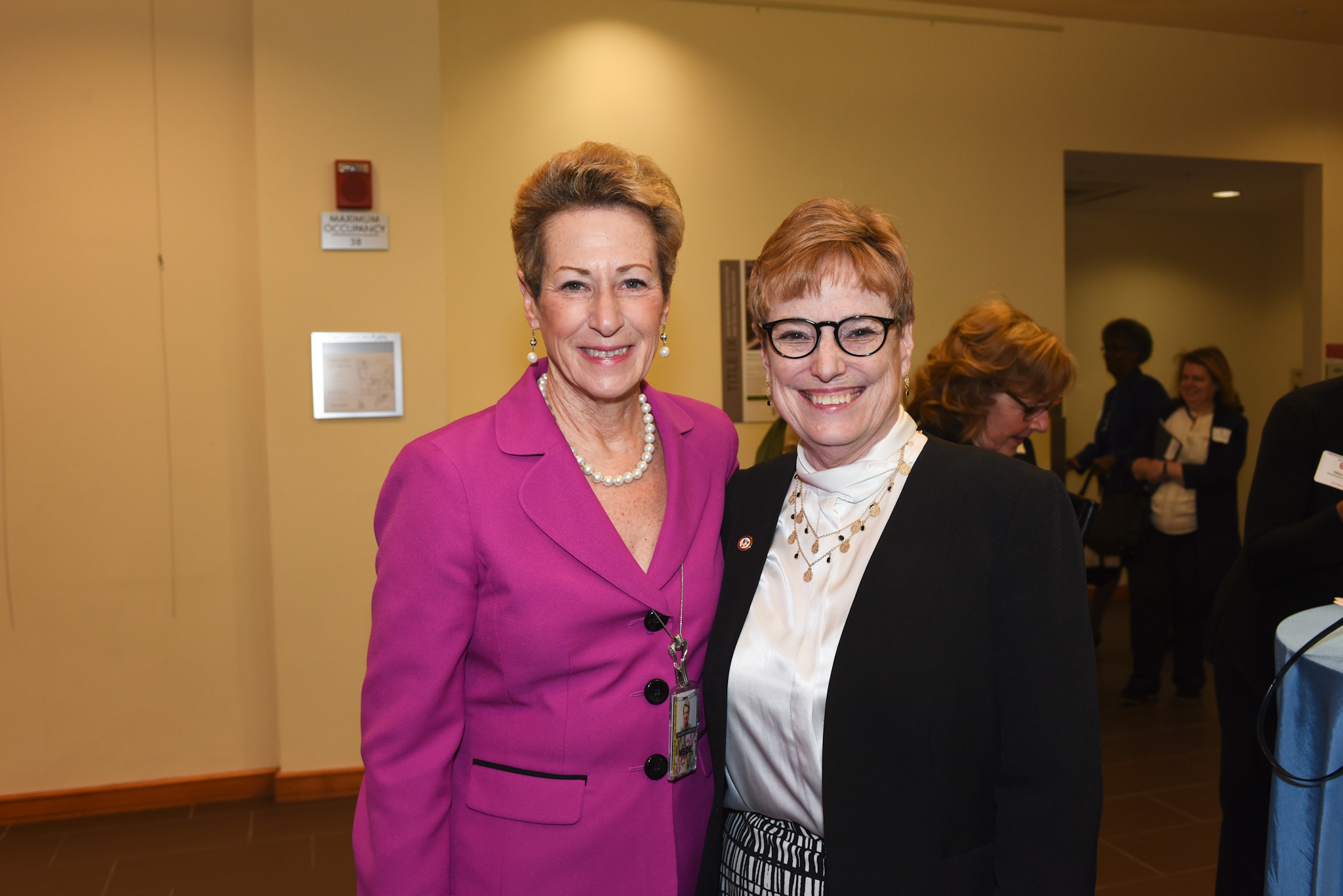
Karen B. Salmon, Superintendent, Maryland State Department of Education
Joann Boughman, Senior Vice Chancellor for Academic and Student Affairs, USM
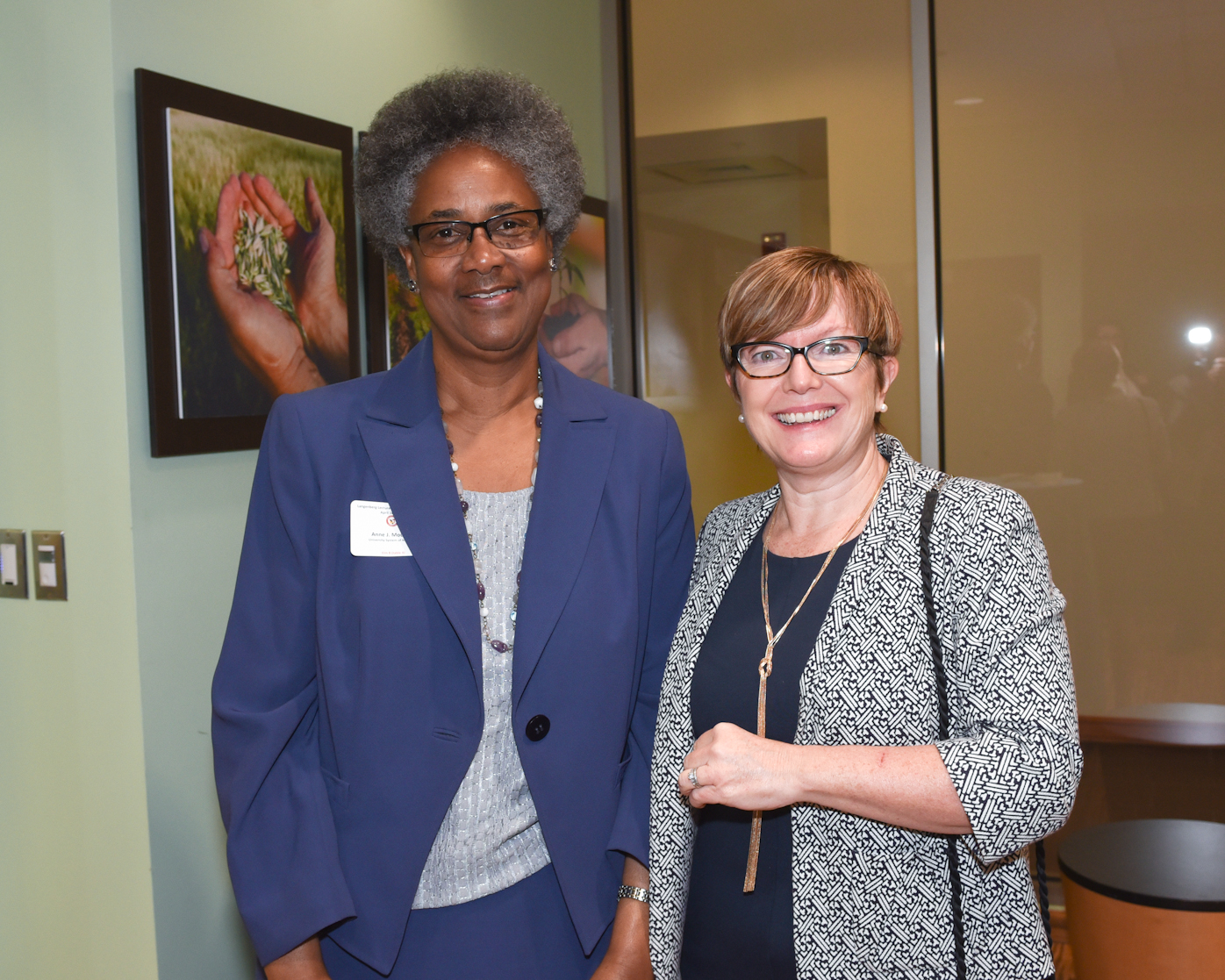
Anne Moultrie, Former Vice Chancellor for Communications, USM
Marianne Horrigan, Vice President of Board Relations, Associate Vice Chancellor and Chief of Staff
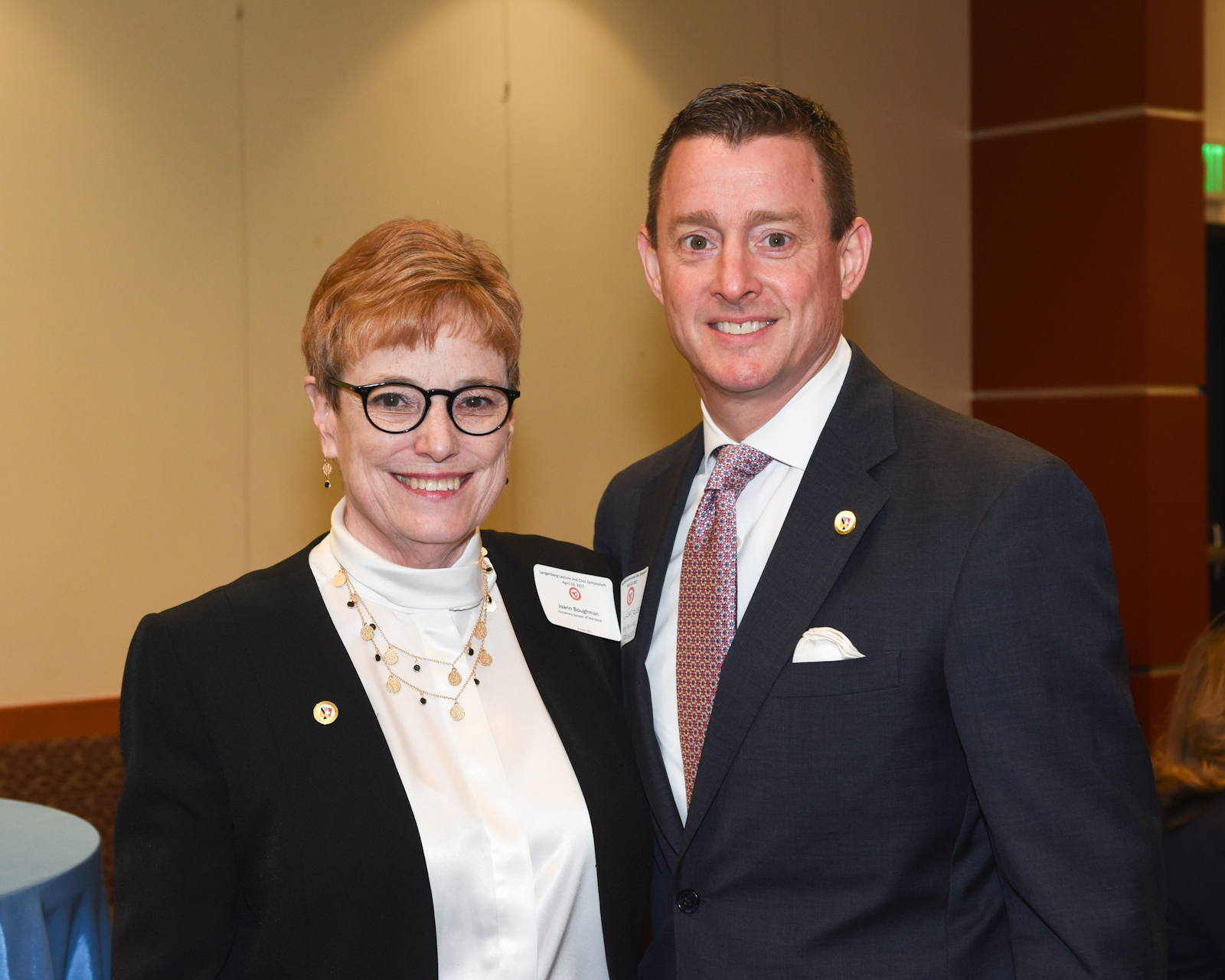
Joann Boughman, Senior Vice Chancellor for Academic and Student Affairs, USM
Tom Sadowski, Vice Chancellor for Economic Development, USM
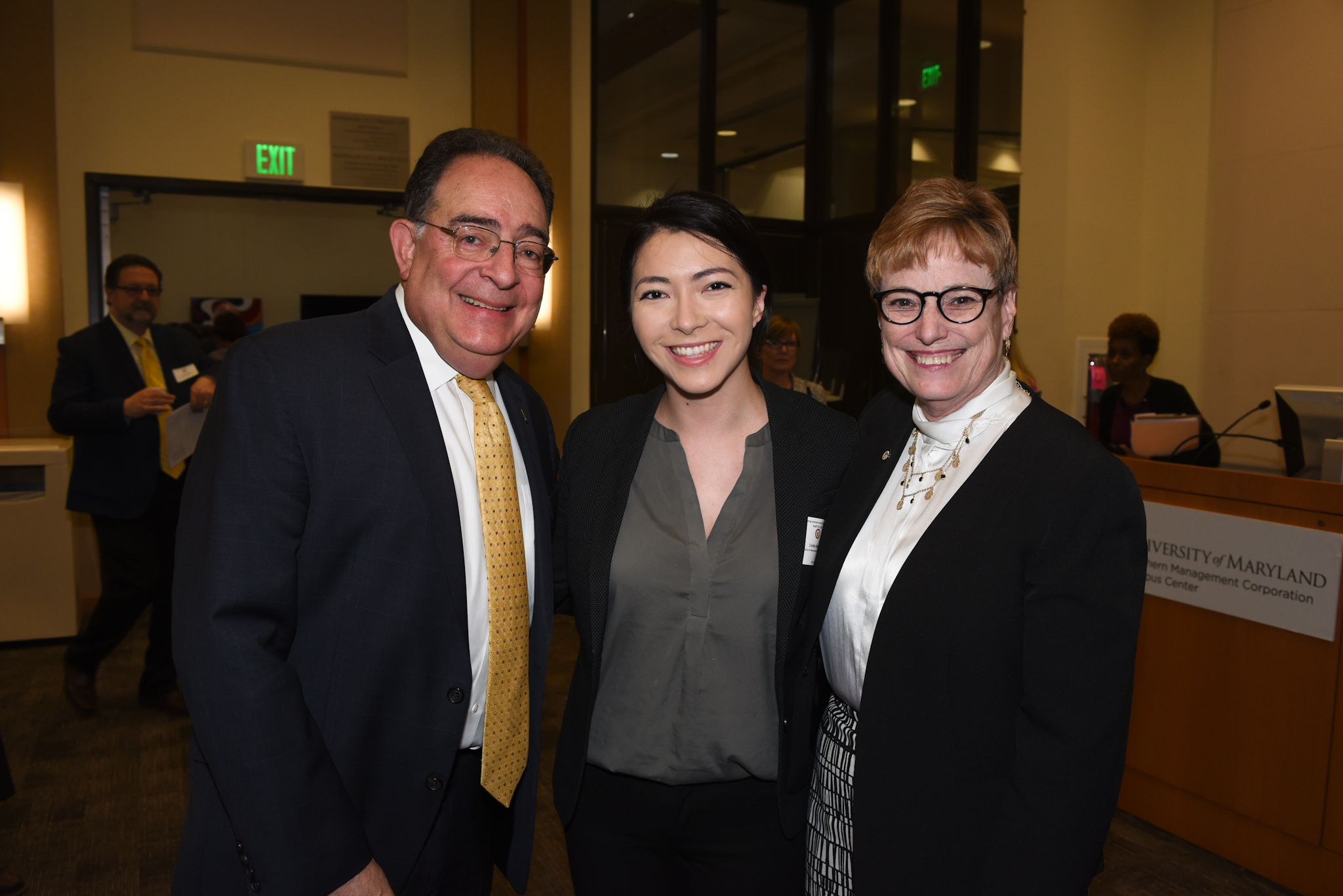
Jay A. Perman, President, University of Maryland, Baltimore
Linda S. Morris, UMB Law Student and Langenberg Scholarship Recipient
Joann Boughman, Senior Vice Chancellor for Academic and Student Affairs, USM
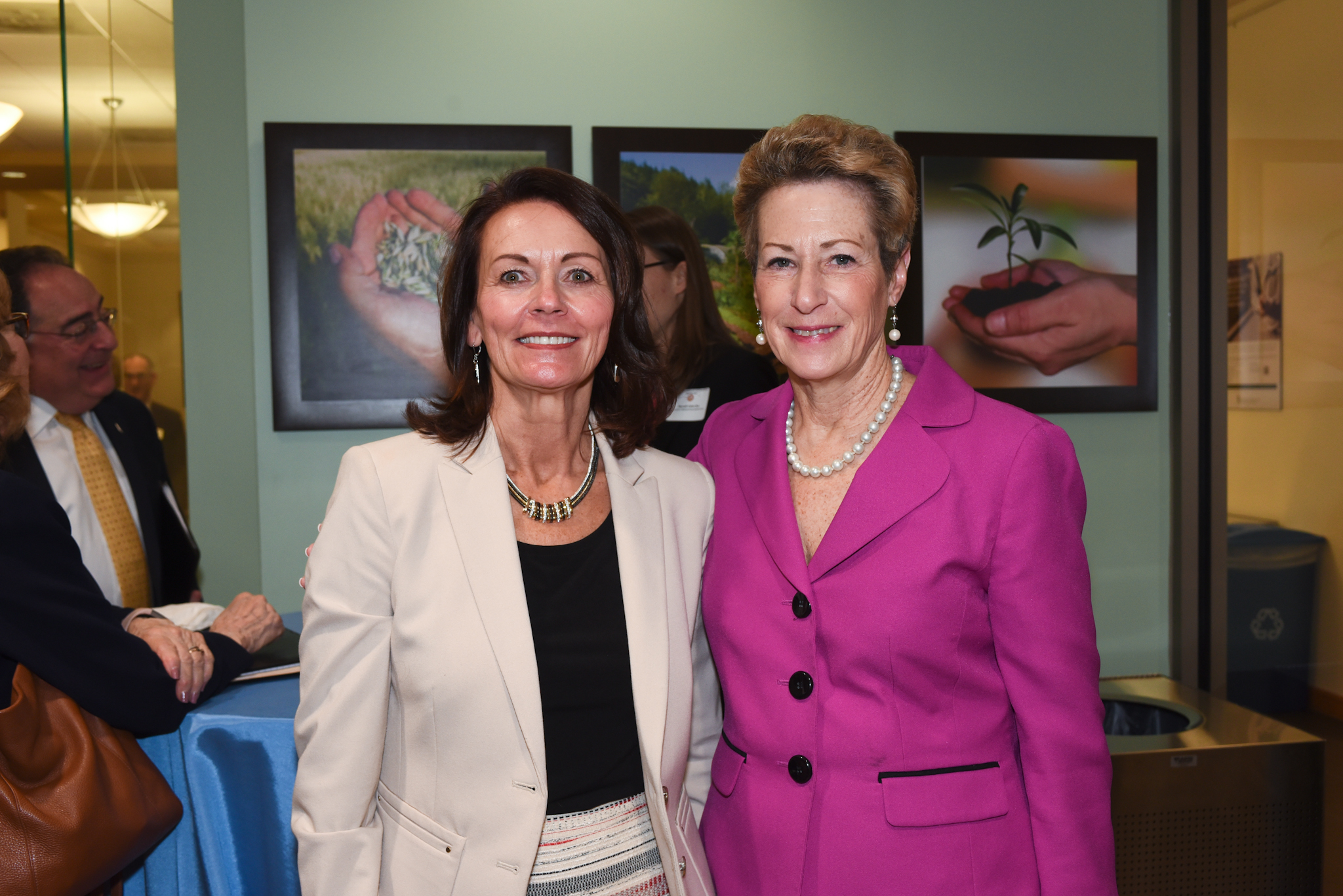
Tina Bjarekull, President Maryland Independent College and University Association
Karen B. Salmon, Superintendent, Maryland State Department of Education
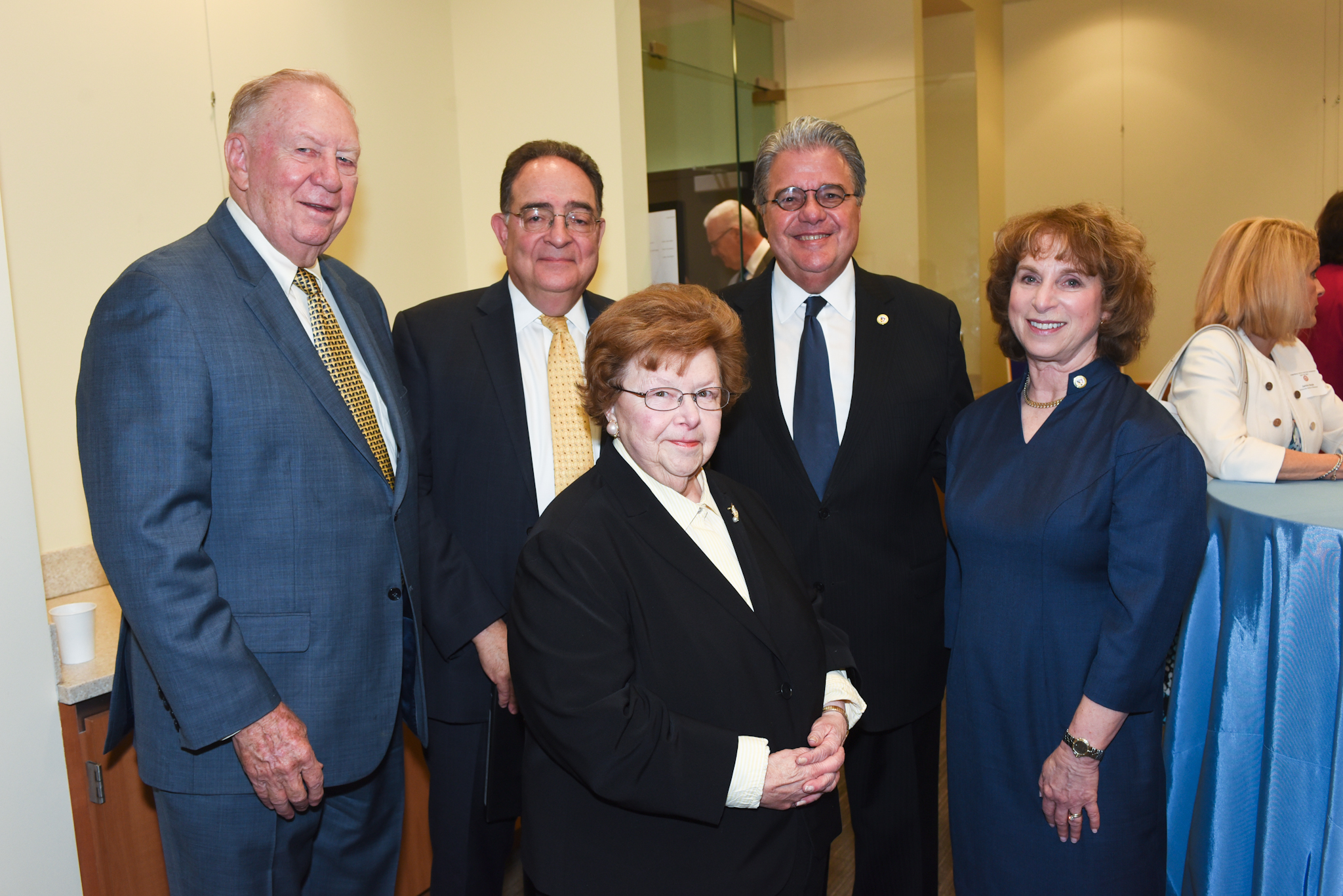
Clifford M. Kendall, Former Chair, USM Board of Regents
Jay A. Perman, President, University of Maryland, Baltimore
Robert L. Caret, Chancellor, USM
Nancy Shapiro, Associate Vice Chancellor for Education and Outreach, USM
The Honorable Barbara Mikulski
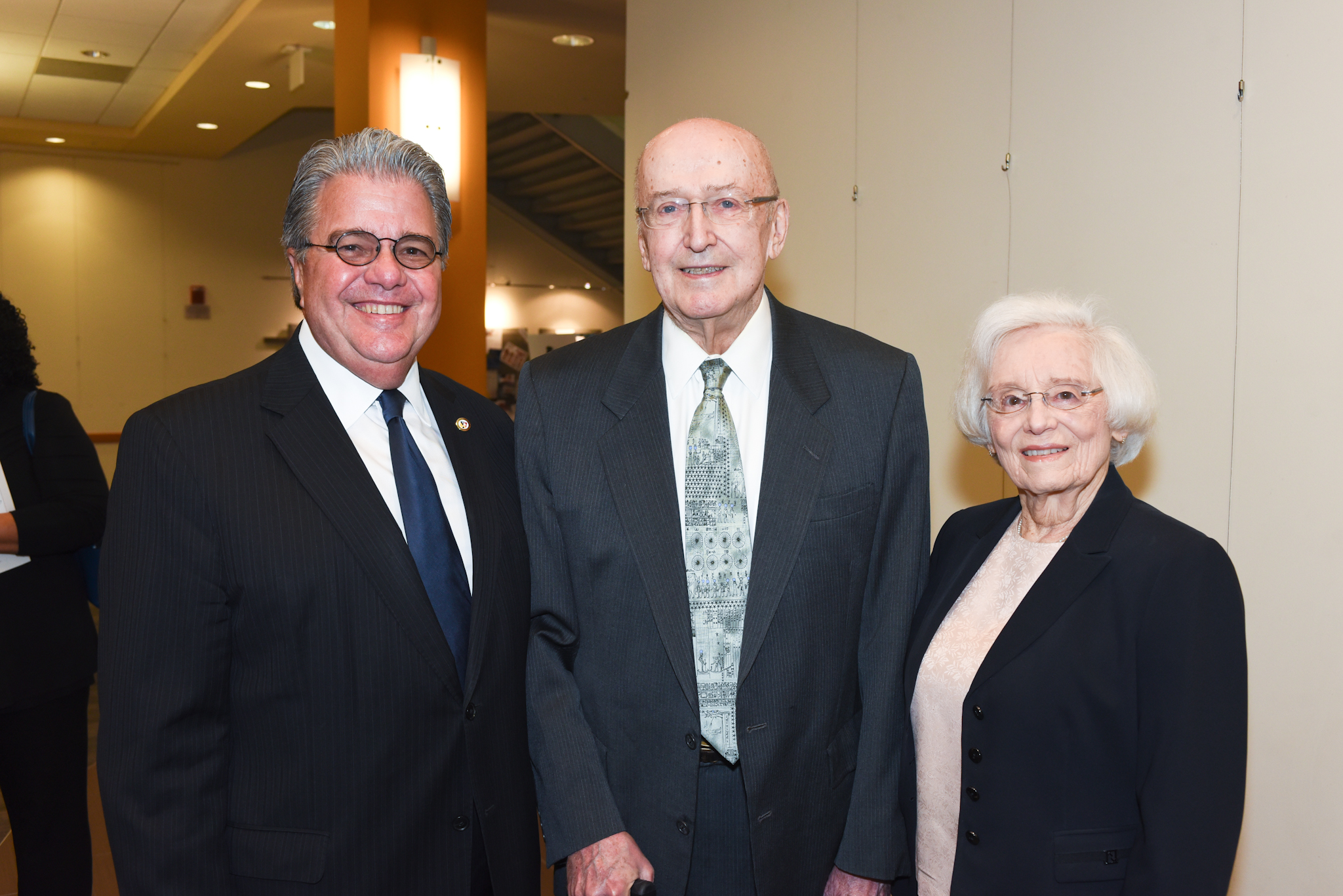
Robert L. Caret, Chancellor, USM
Donald N. Langenberg, Chancellor Emeritus, USM
Patricia Langenberg, Professor Emeritus, University of Maryland School of Medicine
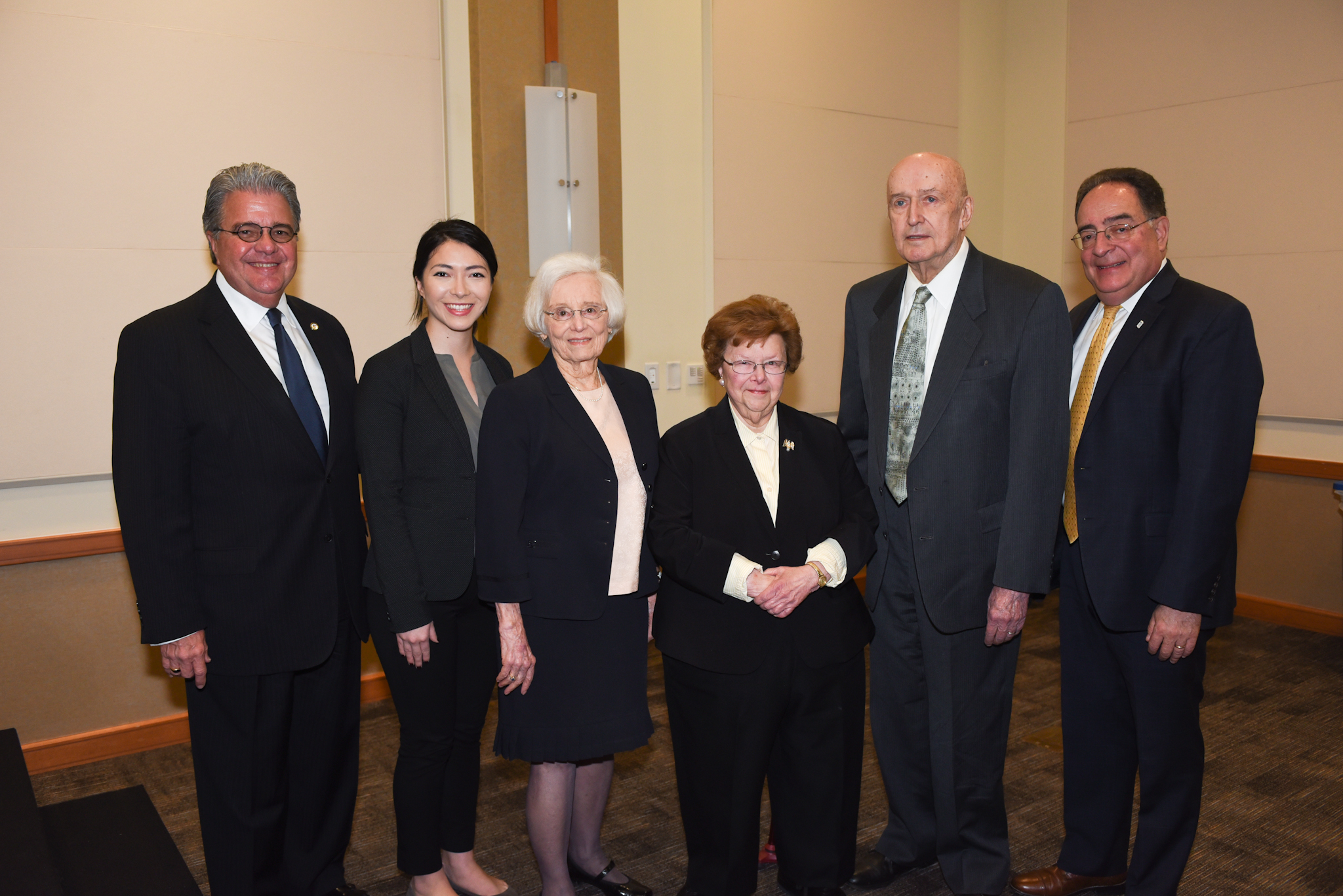
Robert L. Caret, Chancellor, USM
Linda S. Morris, UMB Law Student and Langenberg Scholarship Recipient
Patricia Langenberg, Professor Emeritus, University of Maryland School of Medicine The Honorable Barbara Mikulski,
Donald N. Langenberg, Chancellor Emeritus, USM
Jay A. Perman, President, University of Maryland, Baltimore
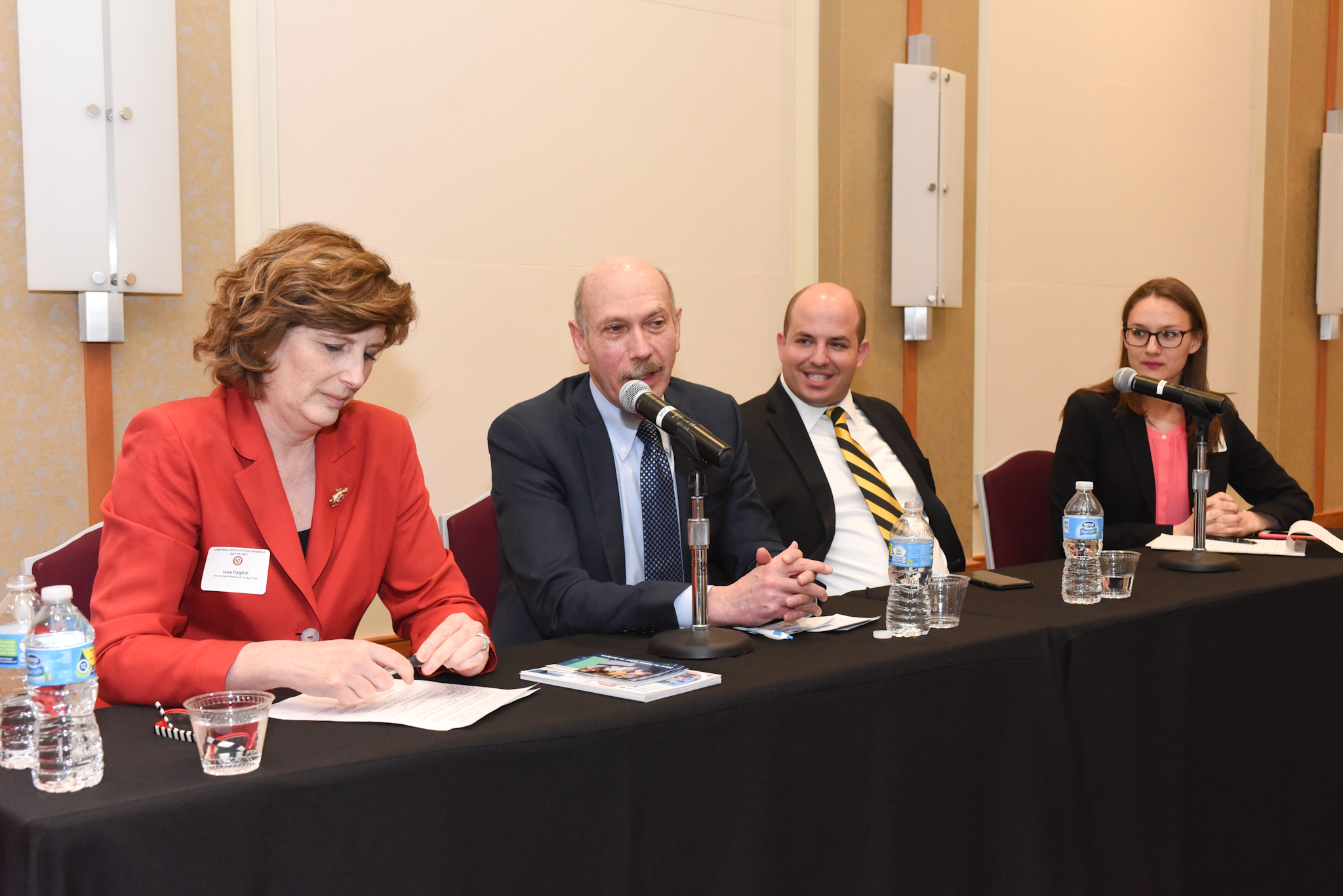
Lucy Dalglish, Dean, University of Maryland College of Journalism
Alan Miller, The News Literacy Project, President and CEO
Brian Stelter, Senior Media Correspondent, CNN
Hanna Cole-Chu, Student, University of Maryland Francis King Carey School of Law
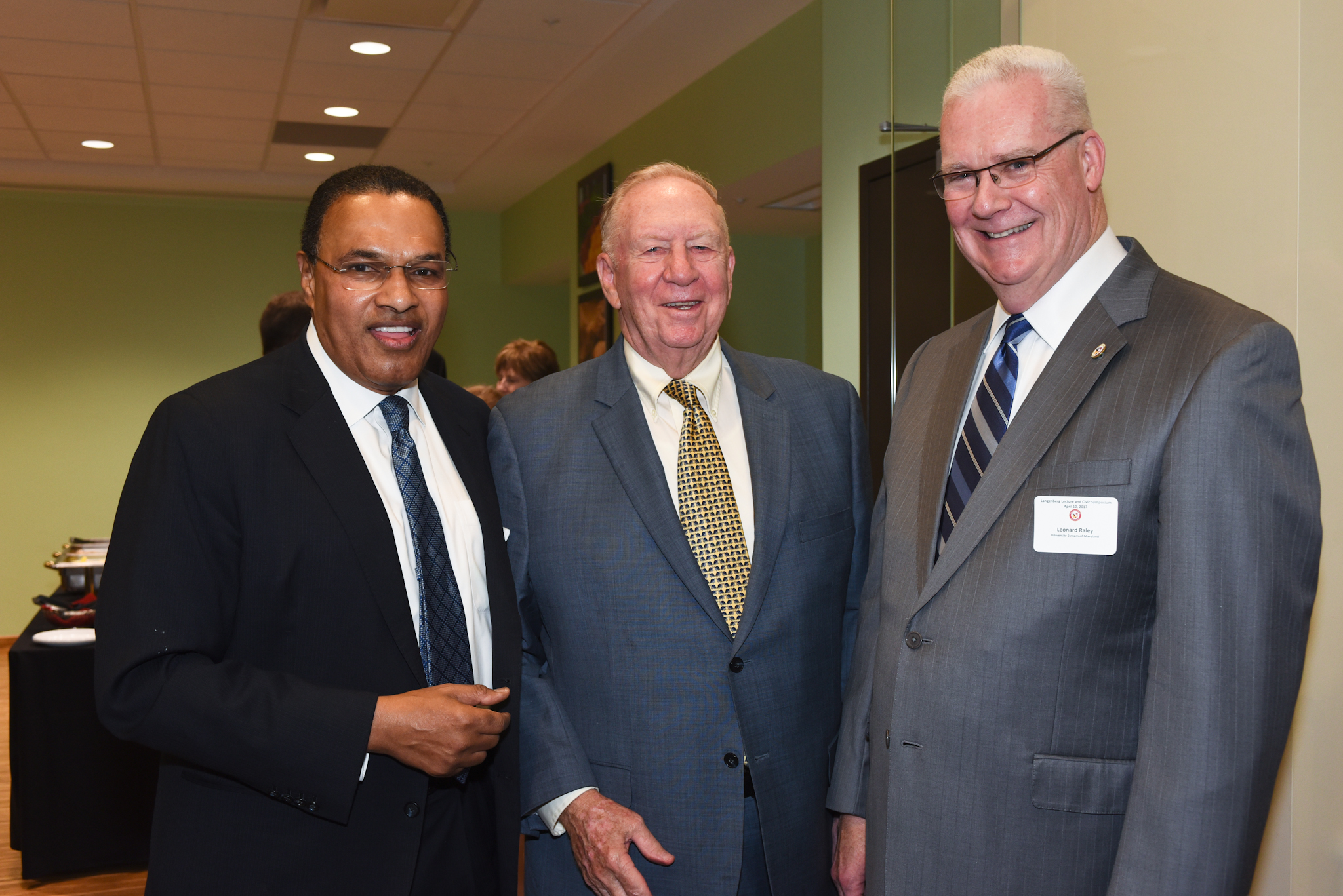
Freeman A. Hrabowski, III, President, University of Maryland, Baltimore County
Clifford M. Kendall, Former Chair, USM Board of Regents
Leonard Raley, President and CEO, Vice Chancellor for Advancement, University System of Maryland Foundation